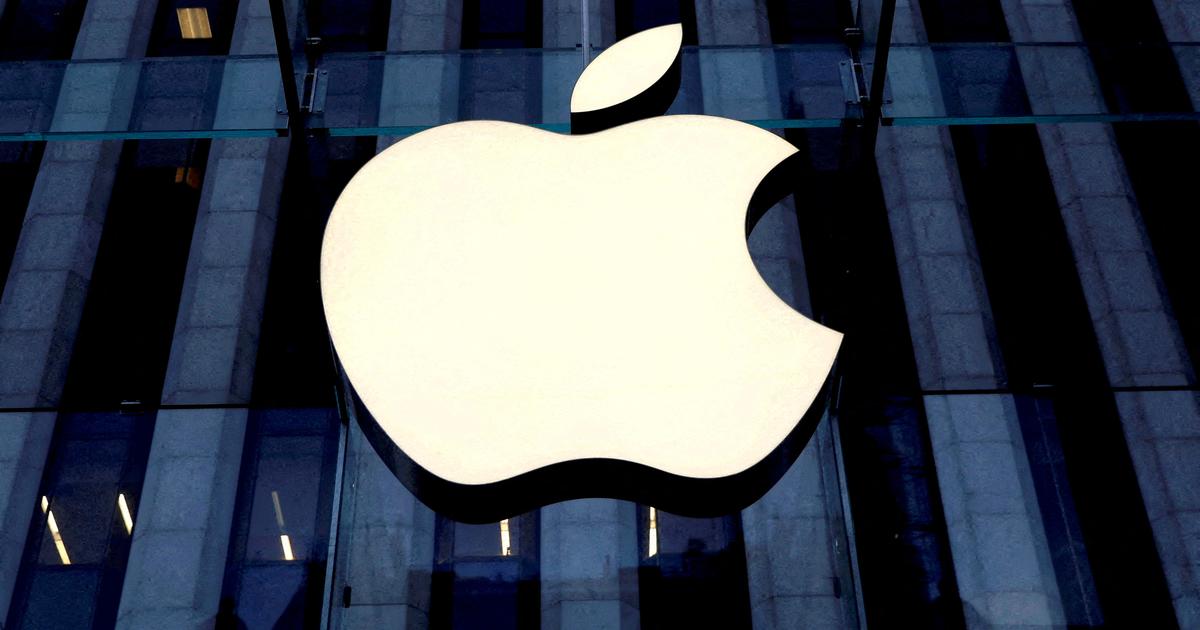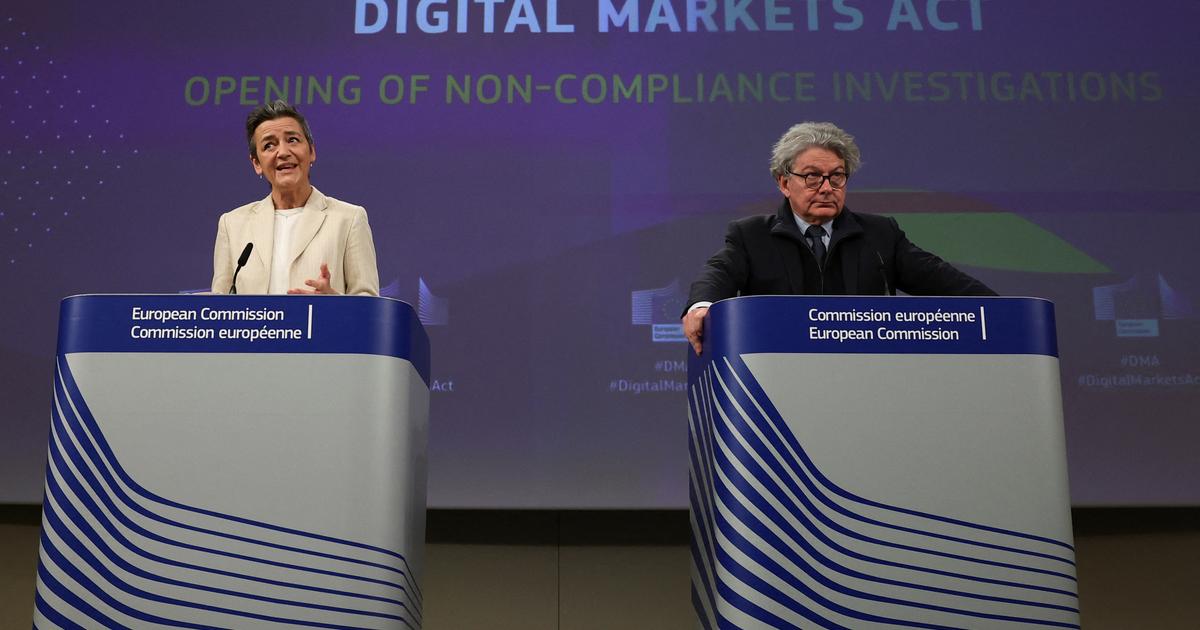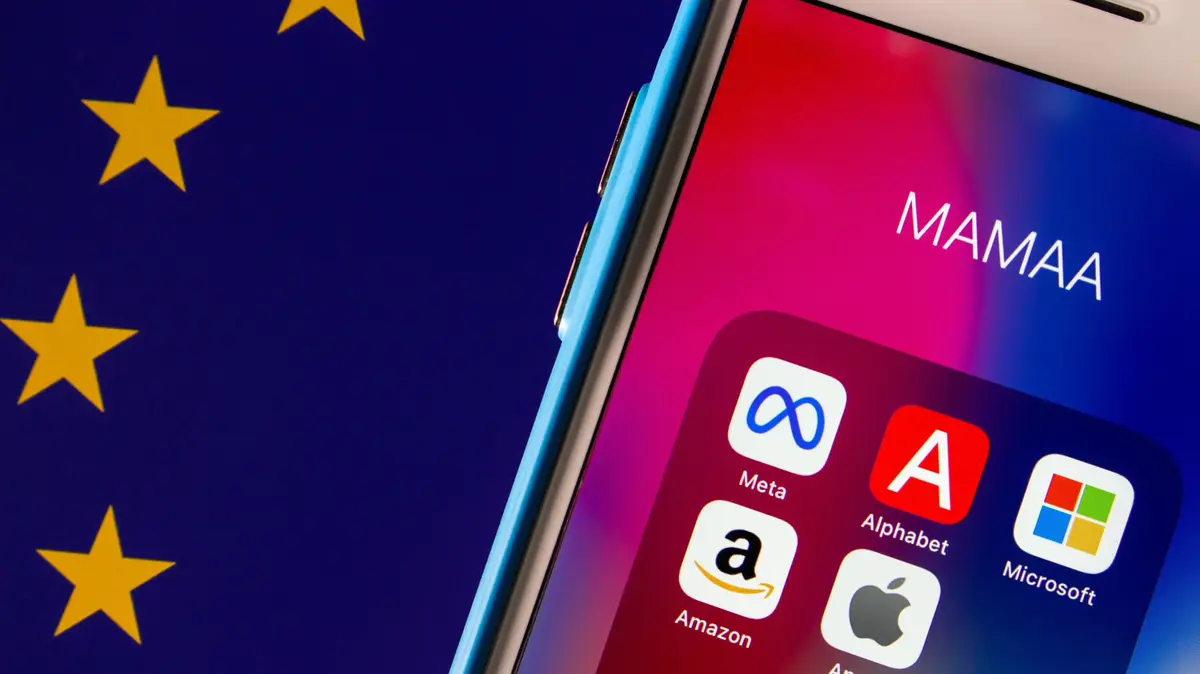Digital Law: Tech giants must follow strict rules
Created: 03/24/2022Updated: 03/25/2022 00:19
The EU has agreed on digital legislation and passed new rules for tech giants like Facebook and Google.
© Matt Rourke/dpa
Google, Facebook and other Internet giants are considered too powerful by many in Europe.
The EU has now agreed on a new law that should put companies in their place.
Brussels - Tech giants like Facebook and Google will have to comply with much stricter rules in the European Union in the future.
Negotiators from the EU states and the European Parliament agreed late Thursday evening in Brussels on a law on digital markets (Digital Markets Act, DMA), which is intended to limit the market power of the internet giants and ensure fairer competition.
This should give consumers more freedom of choice when it comes to online offers.
"This agreement ushers in a new era of tech regulation worldwide," said CDU MEP Andreas Schwab, who negotiated the DMA for the European Parliament.
“The Digital Markets Act puts an end to the ever-increasing dominance of big tech companies.
Now the digital corporations have to show that they also allow fair competition on the Internet.”
"Game changer in regulation"
SPD MP René Repasi said: "The DMA clears up grievances in the digital single market." He spoke of a game changer in the regulation of digital markets.
"Harmful business practices such as personalized advertising or self-preference will be put to an end." Painful sanctions would be made possible - such as the break-up of large companies and a ban on takeovers.
Martin Schirdewan (left), on the other hand, spoke of an unambitious agreement.
"Limiting the DMA to the big tech companies like Google, Amazon and Co. plus a few exceptions is a big mistake."
The iPhone group Apple reacted concerned that some DMA regulations would create unnecessary data protection and security gaps for users.
"Different DMA rules will make it impossible for us to collect fees for intellectual property in which we invest heavily."
The “Coalition for App Fairness”, which brings together competitors primarily from Apple and Google such as Spotify and Epic Games, welcomed the agreement as “an important step in the fight for a free and fair mobile app ecosystem.
A strong DMA will stimulate competition and encourage innovation, said CEO Rick VanMeter.
Especially Google, Amazon, Facebook and Apple affected
The DMA is part of a large digital package presented by the EU Commission in December 2020.
The second part is the Digital Services Act (DSA), which Parliament and EU countries are still negotiating.
The DSA deals with social aspects such as hate speech or counterfeit products.
Most recently, at the beginning of the millennium, the EU gave itself comprehensive rules for the Internet.
Complaints are heard again and again today that the Internet is a legal vacuum and that it is difficult to enforce existing rules.
So far, competition law from the analog world has not been able to prevent the rapid concentration of users and market power in a few digital groups.
The DMA now targets certain companies that are an important gateway to the end consumer for commercial users.
These so-called gatekeepers have to observe certain do's and don'ts.
Companies fall under the DMA if they have annual sales of at least €7.5 billion or a market capitalization of at least €75 billion.
In addition, they must operate a so-called central platform service with at least 45 million active users and 10,000 active commercial users per month.
These central platform services include search engines such as Google and social media such as Facebook.
Sanctions are imminent in the event of violations
One of the new rules is that in the future, large companies will only be able to combine data from different sources with the express user consent.
"If users do not agree to this, the big tech companies must continue to allow alternative ways of using their services - this creates real alternatives between "paying with all data" or not being able to use any services," Schwab said.
A blanket ban on personalized advertising or a complete ban on personalized advertising for children and young people was not decided in the DMA.
However, large messenger services such as WhatsApp and iMessage would have to open up in the future to also being able to receive messages from smaller messengers.
For group chats, this should only come over the coming years.
more on the subject
EU agreement on digital law foreseeable
EU digital law is approaching: Less power for tech giants
Apple flexes its muscles as a chip developer
In the event of violations, companies face severe financial sanctions, and in exceptional cases the company may also be split up.
Thursday's agreement has to be formally confirmed again by the Council of the EU States and the European Parliament.
dpa











/cloudfront-eu-central-1.images.arcpublishing.com/prisa/KMEYMJKESBAZBE4MRBAM4TGHIQ.jpg)



